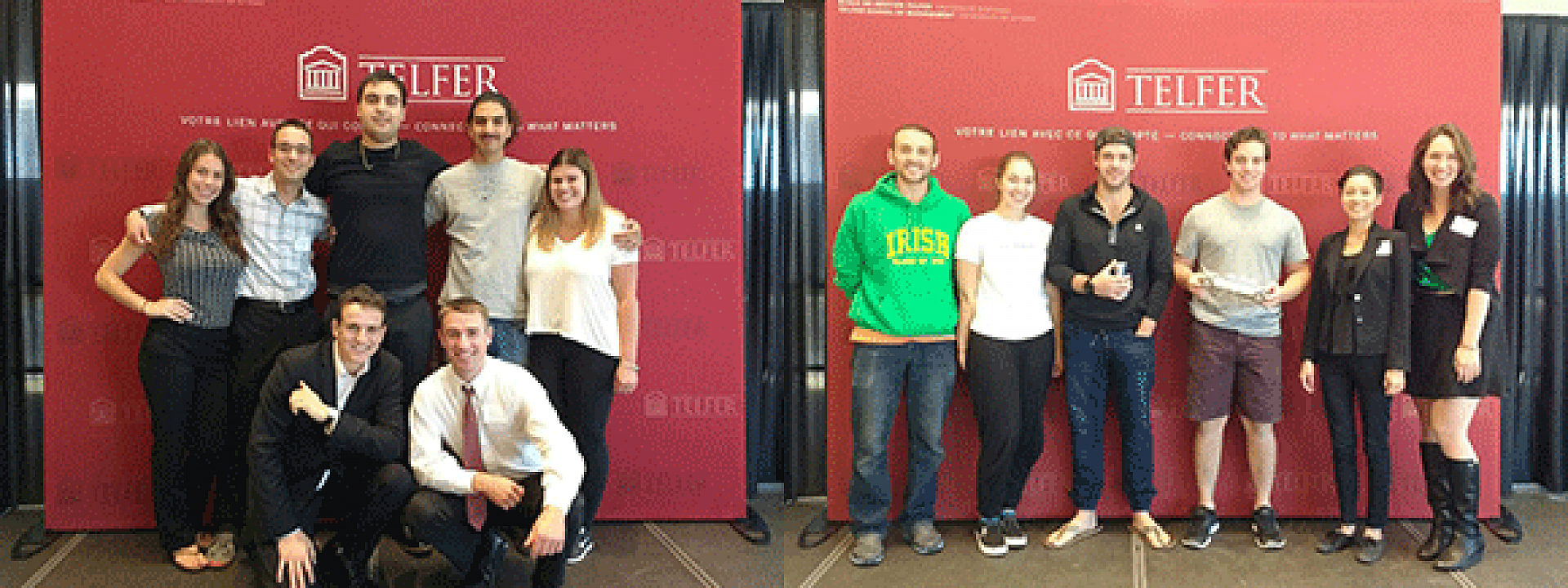During the weekend of September 23 to 25, Telfer School of Management students in the ADM4317 Leadership, Strategy and Sustainability course engaged in an intensive simulation called The Green Business Lab.
“The Green Business Lab is unique in that it is the only interactive, live, comprehensive business simulation that can provide students with a hands-on experience in running a business while at the same time solving the most pressing problems arising from environmental and social issues facing organizations today” said Daina Mazutis, Endowed Professor of Ethics, Responsibility and Sustainability at the Telfer School. “It connects students directly to important strategic decisions that they will need to make as future business leaders.”
Working in teams, the students were immersed in running a business where each team member played a key function in the company. They had to shape the company’s strategic direction, design and build a new product and improve performance. Yet, due to mounting pressure from various stakeholders — including customers, governments and NGOs — success depended on triple-bottom-line (economic, environmental, social) metrics.
Teams made final presentations to a panel of judges who evaluated their strategy. This board of directors was composed of Robert G. White, CA, CMA, CPA, Independent Investor and Adviser (Telfer BCom 1992), Kristina Haakman, VP Finance at Brookfield Renewable Energy (Telfer BCom 2003), Salim Charabati, B.Arch. MBA, Consultant BuildGreen Solutions (Telfer EMBA 2016) and John Purkis, Senior Associate, The Natural Step.
Spherical Solutions (George Amidjinov, Kacey Cryan, Francis Desjardins, Alexis Harrison, Adam Khawas, Philippe Lafontaine and Vanessa Mangano) finished first in the “Industrialized Nations” category and “Eco-Impact Spheres” (Patrik Hashem, Andrew James Low, Olivia Le, Cassandre Pomerleau, Isabelle Trudeau and Jacob Sousa) finished first in the “Developing Nations” category. These teams developed the best overall strategy from a triple bottom line perspective.
“Speaking on behalf of the majority of participating students, the Green Business Lab is a real life, fast paced scenario involving tough decisions” said student Francis Desjardins. “This weekend simulation gave us the possibility to apply our acquired knowledge in a sometimes stressful, but always fun environment. We not only learnt multiple typical business lessons, for example the importance of profits and cash flow, but also the impacts of other bottom lines: the importance of the environment and of social awareness. I would like to thank our Green Business Lab facilitator, our professor, my class colleagues and the Telfer School of Management for this great experience.”
This in-class simulation was made possible with the support of the Telfer School’s Yersh Family Pedagogical Innovation Fund.
About the Green Business Lab simulation
The simulation tests the students’ leadership skills, knowledge of core management disciplines, as well as broader understanding of business’s responsible role in society. The Green Business Lab simulation has previously been run in well-regarded universities such as Cornell University, Georgia State University, Central Michigan University, Denver University, University of Michigan, Georgetown University, University of Iowa, Wayne State University as well as major multinational organizations such as General Electric, Rio Tinto and Chrysler Financial.



